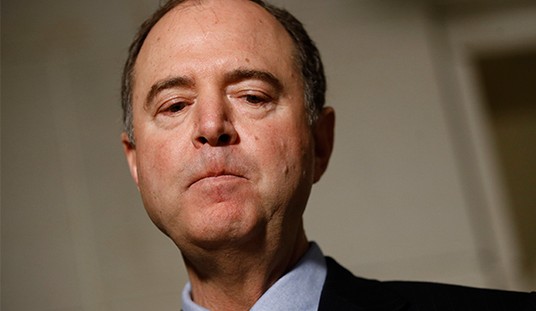Readers will note that President Obama’s announced NSA “reforms” to exempt foreign leaders, delegate the storage of phone records to a non-NSA entity and add more lawyers to the process of accessing communications records substantially follow the recommendations of Cass Sunstein as laid out in the document Liberty and Security in a Changing World. These recommendations were analyzed in the post The Black Chamber.
Do they help? I wrote that they did not. They do nothing to reduce the main source of danger, which is the close relationship between domestic intelligence gathering and law enforcement. Sunstein’s recommendations don’t really fix anything and perhaps that is the point of them.
I wrote in the earlier post:
The failure of oversight lies rather in the bureaucratic incentives in Washington. In particular it may suffer from the ambiguous mission of the FBI, which is not only an a de facto domestic intelligence agency, it is also a law enforcement organization. Intelligence gathering is by nature concerned with what the Minority Report called “pre-crime”. By contrast, law enforcement is by American tradition a post-facto affair.
You have the right to do the crime if you are willing to do the time. But until you actually do the crime you are still blameless. However this distinction vanishes when intelligence and criminal prosecution are vested in the same agency. When you come right down to it, the most important danger to losing privacy is the danger you will go to jail for something you don’t even know is a crime.
Sunstein’s recommendations does nothing to resolve or to separate intelligence from criminal investigation insofar as US persons are concerned. An FBI agent rises on the basis of convictions — those are his incentives. Sunstein’s recommendations about what and what cannot be collected are largely irrelevant if that problem is not addressed.
As the IRS investigations of political enemies show, it is what you are allowed to do with what you know that constitutes the major peril. When the intelligence and law enforcement functions are mixed they constrain each other, as may have happened in the case of the Boston Bombers. The incentive of the FBI is to secure a conviction. The incentive of intelligence is to anticipate a threat. Mix these two functions together and you sometimes get neither or if you get something, you get something very dangerous.
Nor does Obama’s plan to have some other entity technically hold records while awaiting for a request to search protect privacy. The Guardian described Obama’s plans thus:
In his widely anticipated address at the Justice Department on the future course of US surveillance policy, Obama said the government should no longer hold databases of every call record made in the United States, citing the “potential for abuse”.
But Obama did not say what should replace the databases and made it clear the intelligence agencies should still be able to access call records information in some unspecified way, signalling a new round in the battle between privacy advocates and the NSA’s allies.
This solves nothing. The Guardian notes that Obama has “made it clear the intelligence agencies should still be able to access call records information in some unspecified way”. The Black Chamber is still located over the Post Office. Now it’s been moved one room further away. As I wrote in my previous analysis, leaving the records with the communications company or some industry repository:
marks a return to the days of AT& T. What does it matter where the data is stored if it is in principle accessible anyway? This is solving the nonproblem part of the problem. The Federal Government was equally happy in the heyday of AT&T, which stored all the data in one place where the Feds could get at it anyway.
Today instead of a monopoly, there are hundreds of telecomms companies. The NSA has to store it themselves for ready access. Ordering their return could not be be effected without mandated database standards, software version control, coordinated patches, defined interfaces, and security regs. The private companies would in effect be deputized to store data for the NSA in order to achieve the useless task of making the physical location of the data more politically correct. Making companies store the data would really be to control them.
But it is perfect Obama. It echoes the kind of administration thinking on display in his suit against the Little Sisters of the Poor over the contraception mandate. The nuns, you will recall object to the substantial act they are being asked to participate in. In the Obama administratation’s view the objection can be met if the nuns sign a little slip of paper authorizing someone else to do the morally disputed action. Lyle Denniston in Scotusblog describes the administration’s thinking, which is almost exactly how Obama is approaching the NSA records problem.
It seems like a bureaucratic thing to do, but gaining an understanding of what it means to sign government form EBSA 700 is the key to a historic religious controversy now before the Supreme Court in the Affordable Care Act case of Little Sisters of the Poor Home for the Aged v. Sebelius (docket 13A691).
Signing that form, the federal government argues, is a simple way for a religious organization like the Little Sisters to avoid what they regard as a sin: providing contraceptives and other pregnancy-related services to their female employees. But signing, the Little Sisters counter, would be the very act of violating their faith by clearing the way for such services for those employees….
The government’s idea, of course, was to put a clear gap between the religious group and ultimate access to birth control and related health benefits. And the government drafted that form precisely to insulate the religious employer from the services, to “accommodate” its faith principles.
Twenty-nine lawsuits have been filed across the country by non-profit and religiously affiliated universities, schools, and charity groups who regard the duty to sign that form to be anything but an “accommodation.” They believe it puts them at the start of a chain of events that leads inevitably to mandated coverage of the disputed services. That filled-out form, they contend, simply “deputizes” a plan operator to provide the services.
The Obama administration’s argument in the NSA phone records storage case is analogous. They seem to argue that if you just deputize someone else to hold the records the impropriety disappears. In other words, “I shot the sheriff — but I didn’t shoot the deputy.” That makes it OK.
Just as the nuns can step away as long as they hand the authorization to someone else, in the case of the NSA they will no longer hold the records, but “somebody else” — the deputy — will.
And that solves the problem, doesn’t it? Operationally it changes nothing, but it adds a whole lot of moving parts and cost to the process of achieving essentially the same goal. The fundamental difficulty is not resolved, which is the possible abuse of intelligence by tax or police agencies. But it is coated with another layer and — out of sight, out of mind.
The NSA essentially performs a military function. It is part of the Department of Defense. The limitations imposed on it should focus not on what it can collect, but crucially, what it can do in peacetime with what it knows. Exempting foreign leaders from surveillance, as an example, is step in the wrong direction. NSA should surveil foreign leaders — the Chinese will surely surveil American leaders — but it should not act on it ordinarily in peace time. Deputizing telecommunications companies really exacerbates the core problem because it further entails civilian or even private agencies in what is a national defense function. It blurs what should be made distinct.
But it looks good and that’s all that matters. Almost as if to emphasize the fatal conflation of law enforcement and intelligence gathering, Obama delivered his NSA announcement at the Department of Justice!
It was telling that the president chose to deliver his speech at the Department of Justice, which is something of a political haven for him. Earlier this week, Attorney General Eric Holder announced that the administration would extend rules against racial profiling to include religious groups, a move sought by Muslim organizations that are upset about the federal government’s (limited) surveillance in mosques and Muslim neighborhoods.
There are already proposals to limit surveillance on grounds of religious or racial profiling. The ACLU charged that the “Federal Bureau of Investigation is collecting racial and ethnic information and “mapping” American communities around the country based on crude stereotypes about which groups commit different types of crimes.” The confusion between intelligence gathering and law enforcement — between a national defense function and charging people in court — is beginning to spread its fatal poison. The list of exemptions to surveillance — foreign leaders, Muslims, ethnic groups — will grow and grow. Most especially now that as Breitbart notes, John Podesta will be in charge:
President Barack Obama announced Friday that John Podesta, his new “counselor” and the political operative responsible for creating the institutional left in Washington, will be the appointed “to lead a comprehensive review of big data and privacy” in the aftermath of revelations about the National Security Agency’s electronic spying programs. When he joined the White House last month, Podesta’s focus was said to be “climate change.”
Those who fear a police state should remember that it arises best where military and police functions are combined. And yet there’s your “reform”: proposed by Sunstein, implemented by Podesta. What could go wrong? “I shot the sheriff, but I didn’t shoot the deputy.”
Did you know that you can purchase some of these books and pamphlets by Richard Fernandez and share them with you friends? They will receive a link in their email and it will automatically give them access to a Kindle reader on their smartphone, computer or even as a web-readable document.
The War of the Words for $3.99, Understanding the crisis of the early 21st century in terms of information corruption in the financial, security and political spheres
Rebranding Christianity for $3.99, or why the truth shall make you free
The Three Conjectures at Amazon Kindle for $1.99, reflections on terrorism and the nuclear age
Storming the Castle at Amazon Kindle for $3.99, why government should get small
No Way In at Amazon Kindle $8.95, print $9.99. Fiction. A flight into peril, flashbacks to underground action.
Storm Over the South China Sea $0.99, how China is restarting history in the Pacific
Tip Jar or Subscribe or Unsubscribe










Join the conversation as a VIP Member